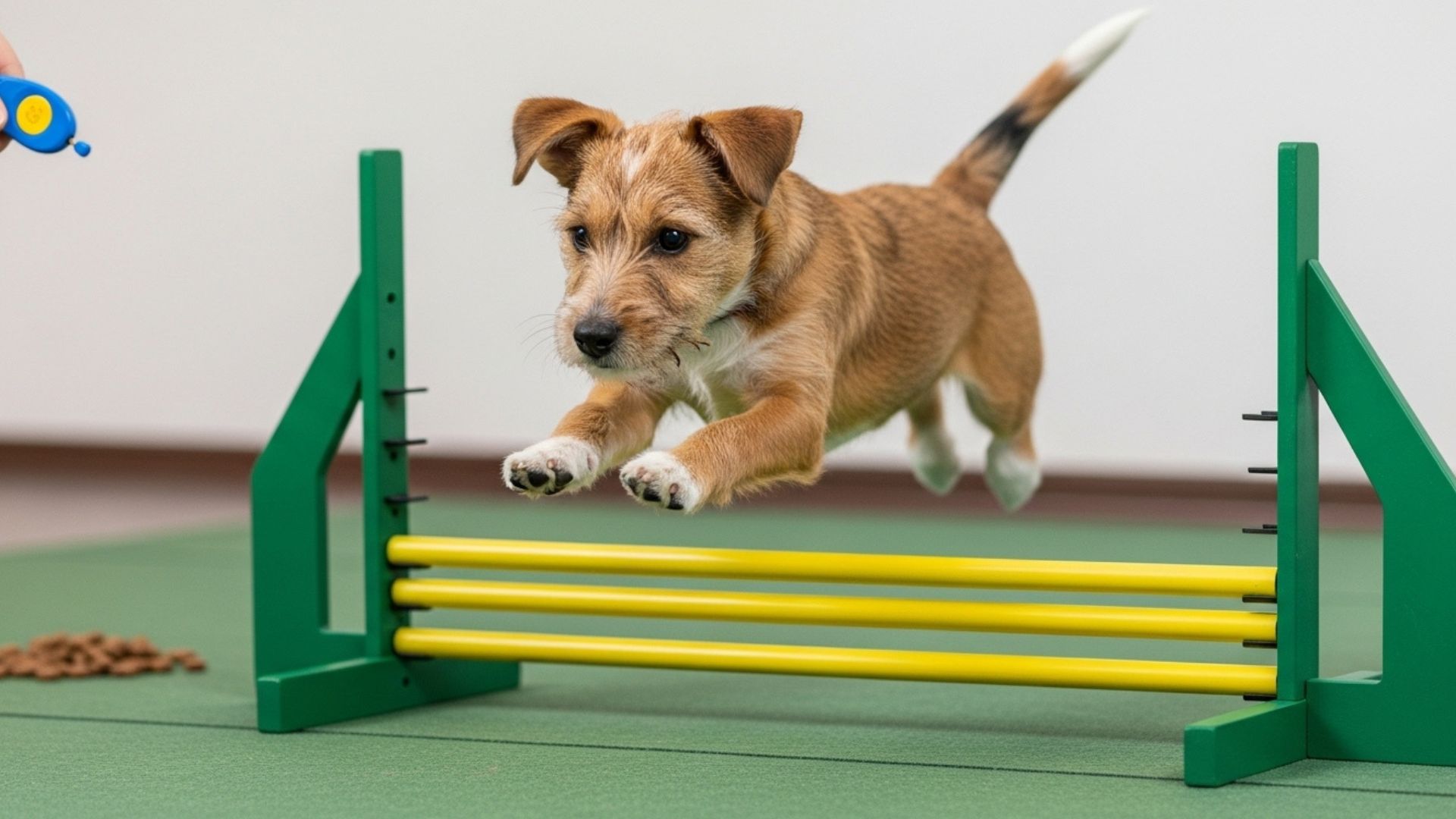While it’s a common misconception that size equals smarts, canine intelligence is not exclusive to large breeds. Intellectual capacity is measured by a dog’s ability to learn commands, its speed of acquisition, and its skill at problem-solving.
Canine psychologists like Stanley Coren have consistently shown that several small breeds rank among the fastest learners and most responsive companions in the dog world, as noted by the APA.
These “tiny geniuses” crush the stereotype of the yappy, stubborn small dog. Their sharp minds thrive on mental challenges, allowing them to master complex tasks and tricks with impressive speed. This high aptitude makes them excellent competitors in canine sports like agility and obedience.
If you’re seeking an intelligent, easily transportable companion ready to become your next star student, you’ll want one of these bright pups. Discover the most intelligent small dog breeds that are eager to impress you with their formidable smarts.
Meet the small dog breeds with the biggest brains—these pint-sized pups are training wizards and clever companions.
Most Intelligent Small Dog Breeds
1. Toy Poodle
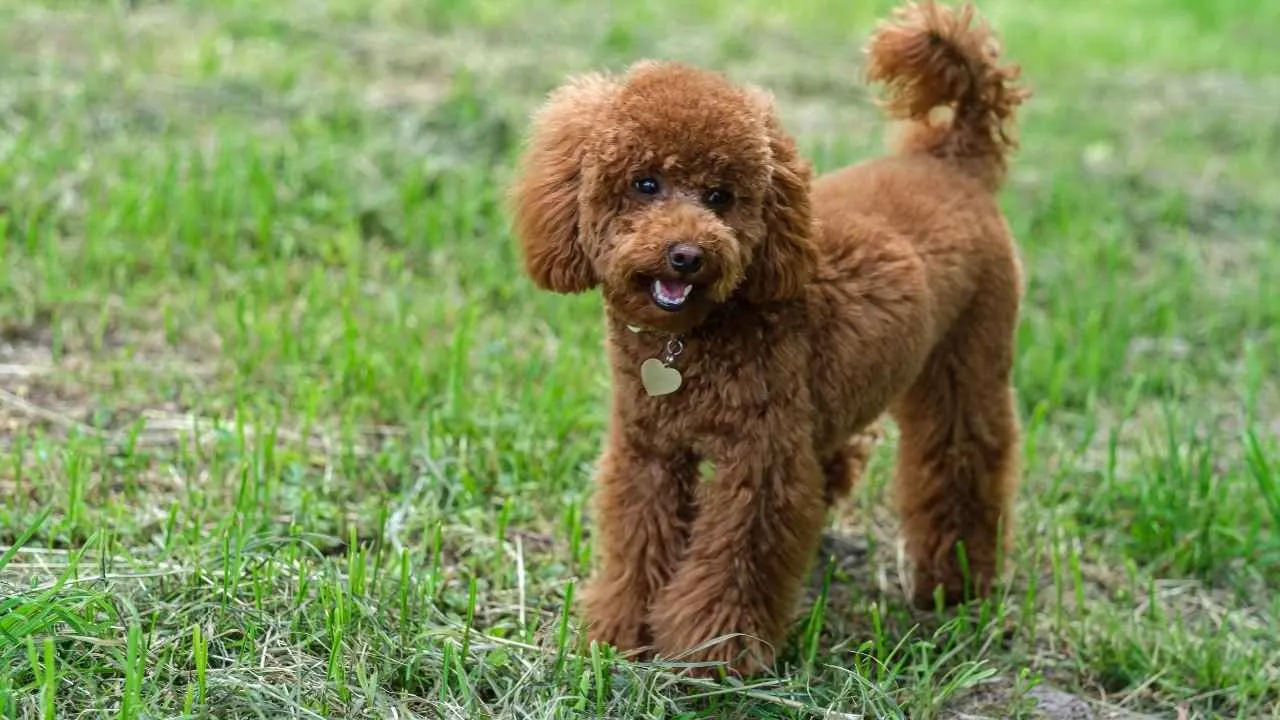
Personality and Smarts
The Toy Poodle is one of the most versatile, smartest dog breeds. Despite their compact size, they have a larger-than-life personality that makes them an excellent companion.
Known for their affectionate nature, these dogs bond closely with their owners and thrive in a family-oriented environment.
Training and Intelligence
Toy Poodles are incredibly easy to train due to their high intelligence and eagerness to please, as mentioned by PetMD. They respond well to positive reinforcement techniques, making training sessions enjoyable and effective.
While they love learning new tricks and commands, consistent training is key to ensuring good behavior during dog sports.
Size and Exercise Needs
The Toy Poodle is a true “toy” breed in terms of size. Despite their small stature, they are energetic and require regular exercise to stay fit and mentally stimulated. A short daily walk, along with interactive playtime and puzzle games, will keep them healthy and content.
2. Papillon
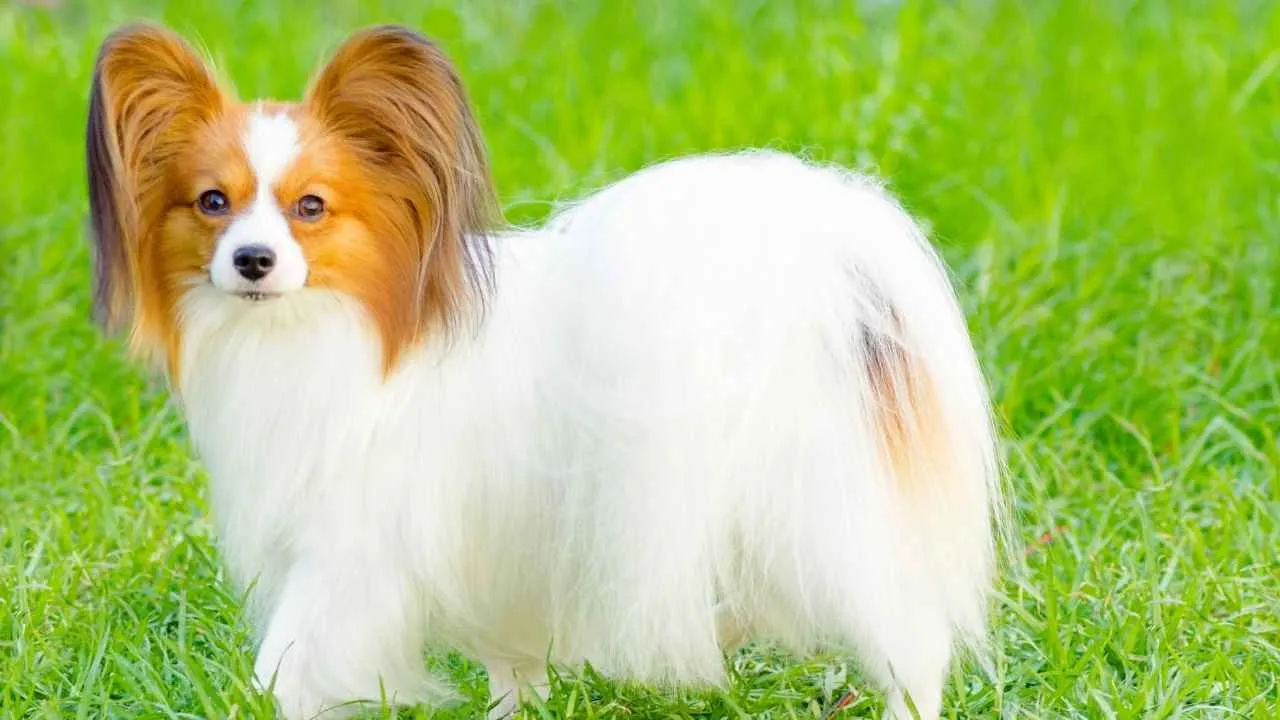
Intelligent and Playful Nature
The Papillon is a stunning, calm small dog breed known for its butterfly-like ears and delightful personality. Despite their delicate appearance, they possess one of the sharpest minds among dog breeds.
Eager to please and full of energy, Papillons excel in environments that offer mental stimulation and plenty of playtime, making them an enjoyable companion for active families.
Size and Exercise Needs
While they may seem like lapdogs, they require at least an hour of exercise each day to stay happy and healthy. Their exercise needs can easily be met in a small space, such as an apartment, though outdoor dog sports and mental challenges, like agility training, can add extra excitement to their day.
Training Challenges and Mental Stimulation
While the Papillon’s intelligence makes training a breeze, their energetic nature can sometimes make them a bit distractible, especially during play.
It’s important to engage them in an environment free from distractions so they can focus. A lack of stimulation can lead to barking or restlessness, so it’s crucial to provide plenty of mental challenges and physical activities to keep them balanced.
3. Miniature Schnauzer
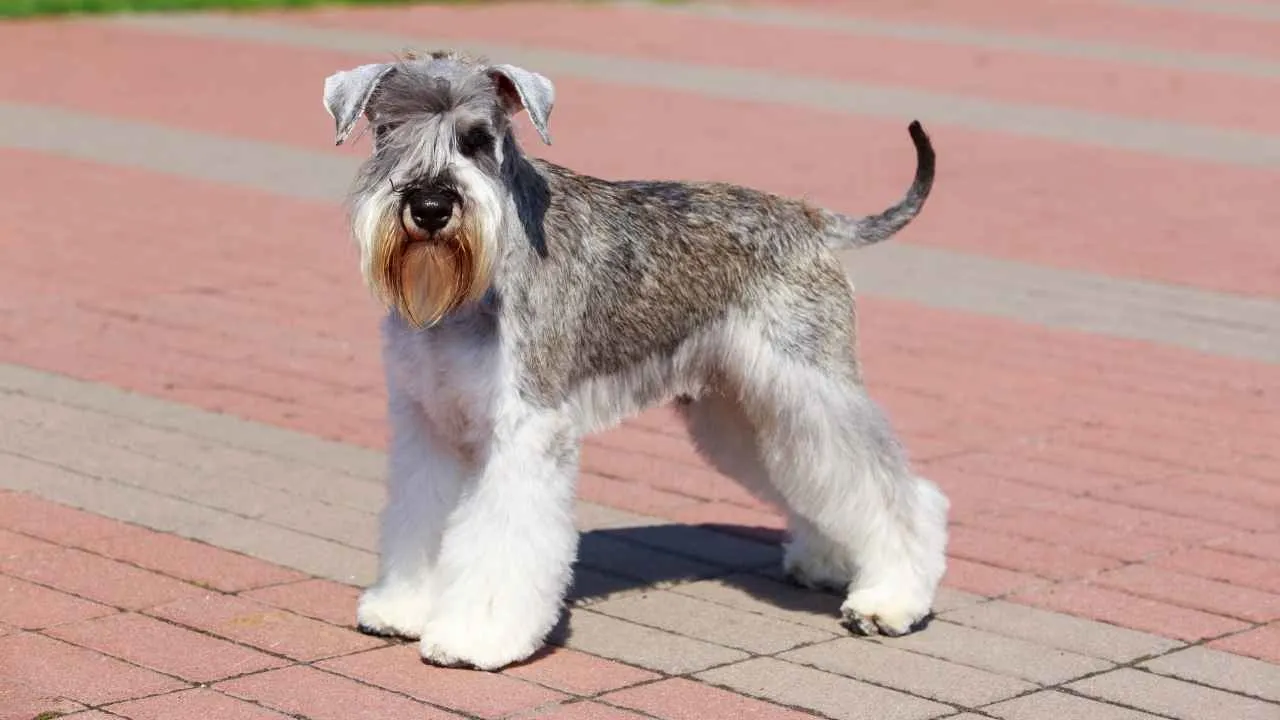
Energetic and Affectionate Personality
The Miniature Schnauzer is a charming, small, intelligent breed with a bold, confident personality and a love for being around people. Despite their small size, they have a big presence and an eagerness to engage with their families.
Known for their friendly demeanor, these dogs are great companions for households with kids or other pets, though they can be a bit vocal at times.
Training and Intelligence
Mini Schnauzers are bright, quick learners that thrive when given the right guidance and structure. Their intelligence, paired with their desire to please, makes them relatively easy to train, though they can get a bit stubborn if not properly motivated.
Positive reinforcement is key—whether you’re teaching them basic commands or more complex tricks, they love the challenge and will rise to it.
Size and Exercise Needs
The Miniature Schnauzer is a small dog with a lot of energy and a strong prey drive, as noted by the AKC. Though they’re compact enough for apartment living, they require at least an hour of exercise a day to stay fit and mentally sharp.
Daily walks, interactive play, and activities like agility training or puzzle games will help burn off their excess energy and keep them engaged.
4. Pomeranian
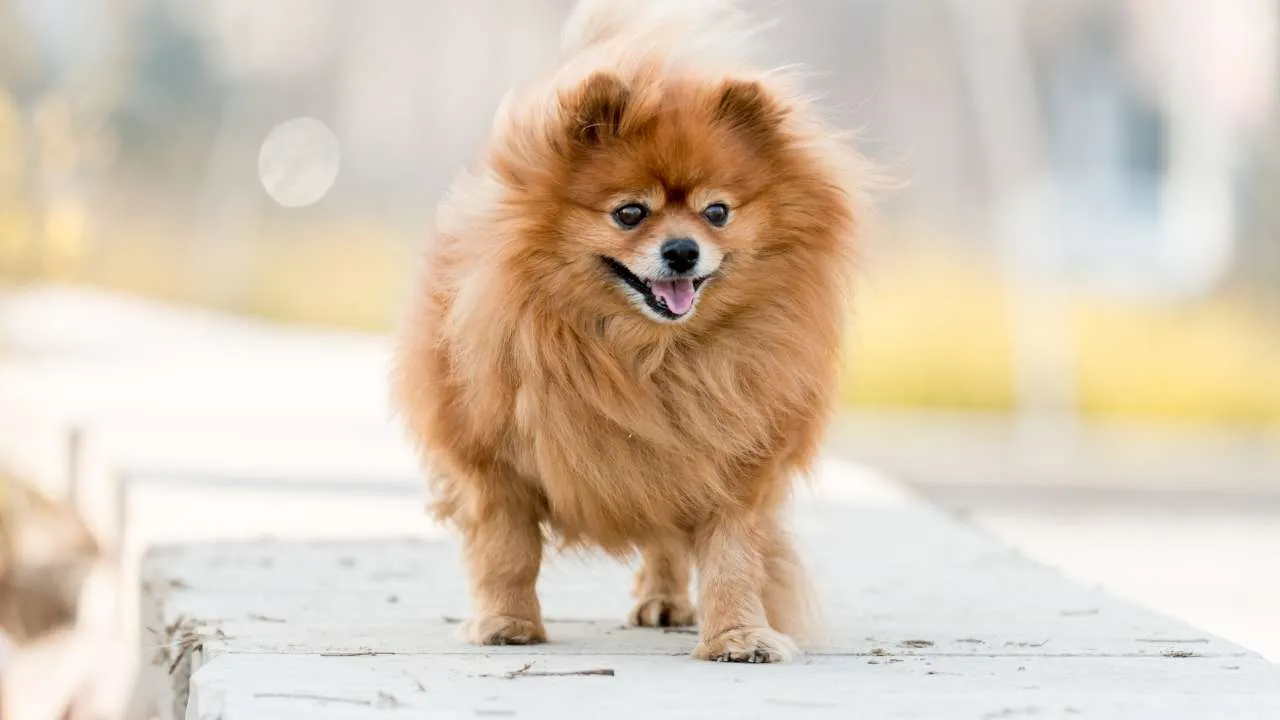
Size and Exercise Requirements
The Pomeranian is the ideal toy-sized, affectionate family pet. They may be small, but they are surprisingly energetic and require daily playtime to stay happy and healthy.
While they don’t need long walks, short outings, along with indoor games or even agility training, are perfect ways to keep them physically and mentally active.
Training Challenges and Behavioral Traits
Though Pomeranians are highly trainable, their lively and sometimes temperamental nature can make them a bit challenging to handle, especially with young children. Additionally, their tendency to bark a lot can be a challenge for some families, as they are naturally alert and make excellent watchdogs.
Ensuring proper training and boundaries will help curb excessive barking and prevent possessiveness from becoming an issue.
Lively, Affectionate Nature
The Pomeranian is a small dog with a big heart, known for its playful and outgoing personality as an affectionate dog breed. Despite their tiny size, these dogs are full of energy and exude confidence, often acting like they’re much larger than they really are.
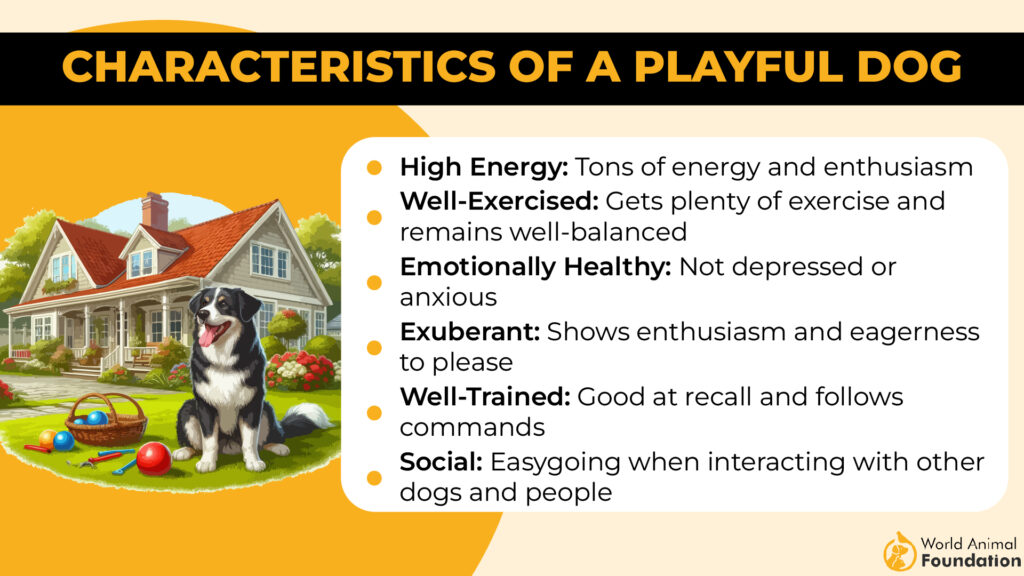
Pomeranians thrive on human interaction and love being the center of attention, making them perfect companions for anyone who enjoys a lively, affectionate dog.
5. Boston Terrier
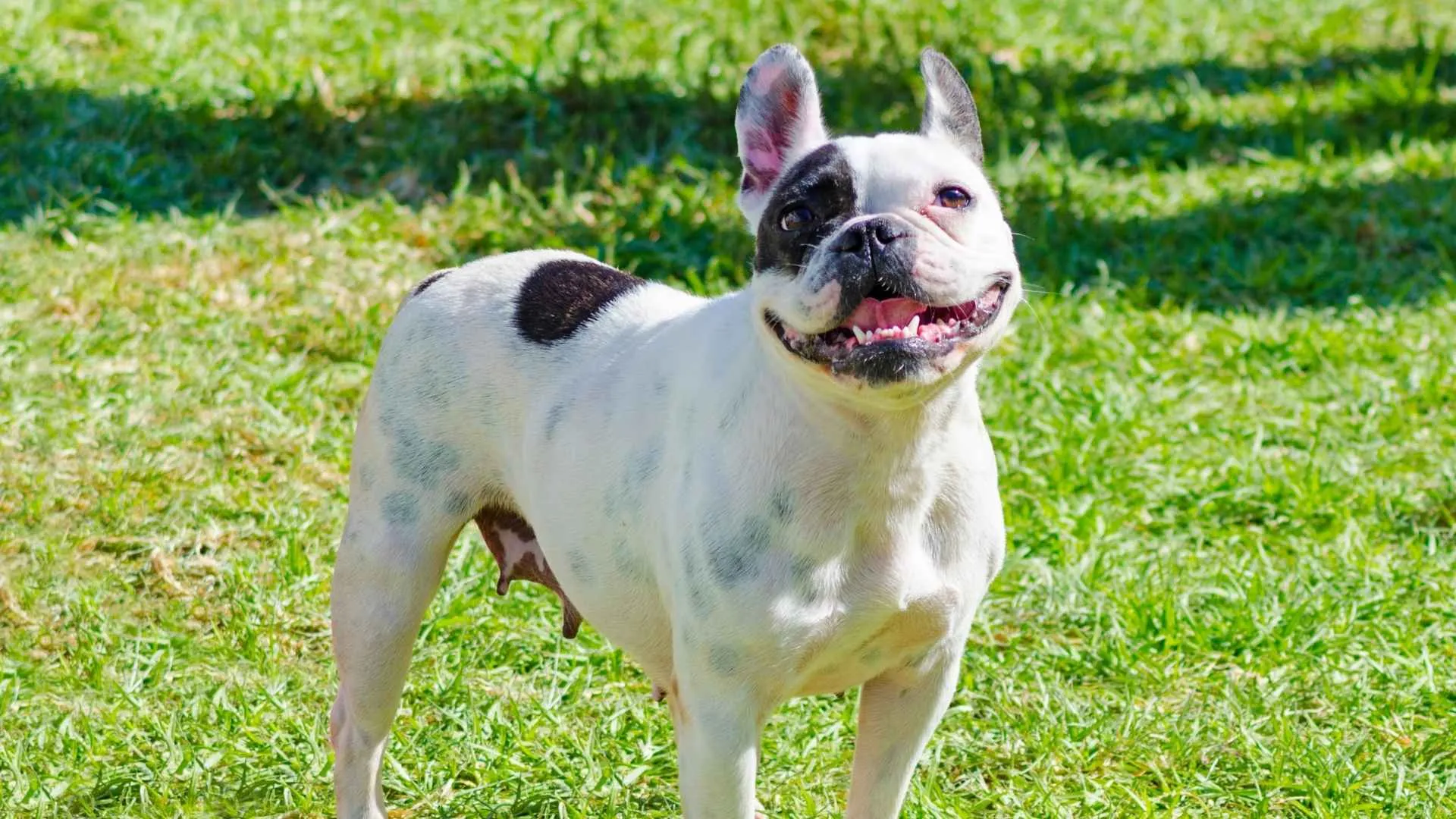
Energetic and Affectionate Nature
The Boston Terrier is a lively and affectionate breed that loves being part of the family action. With their playful and sometimes rambunctious personality, they enjoy participating in whatever their humans are doing.
While they can be energetic, they are also content with moderate exercise and adapt well to apartment living. According to Britannica, they are equally loving, demonstrative, and content to relax in a comfortable lap. The breed is an ideal dog for people of any age, providing entertainment and affection.
Training and Intelligence
Boston Terriers are smart and quick to pick up new commands, especially when positive reinforcement techniques like treats and praise are used.
However, they have a bit of an independent streak, which means patience and consistency are key during training sessions. Turning training into a fun, game-like activity will keep them engaged and motivated.
Size and Exercise Needs
The Boston Terrier is a small, sturdy, intelligent breed that doesn’t require intense exercise. They thrive on short, frequent bursts of physical activity throughout the day, such as indoor play or a quick backyard session.
While they don’t need long walks, it’s important to give them enough exercise to keep them mentally stimulated and to prevent undesirable behaviors like excessive barking or chewing.
6. Border Terrier
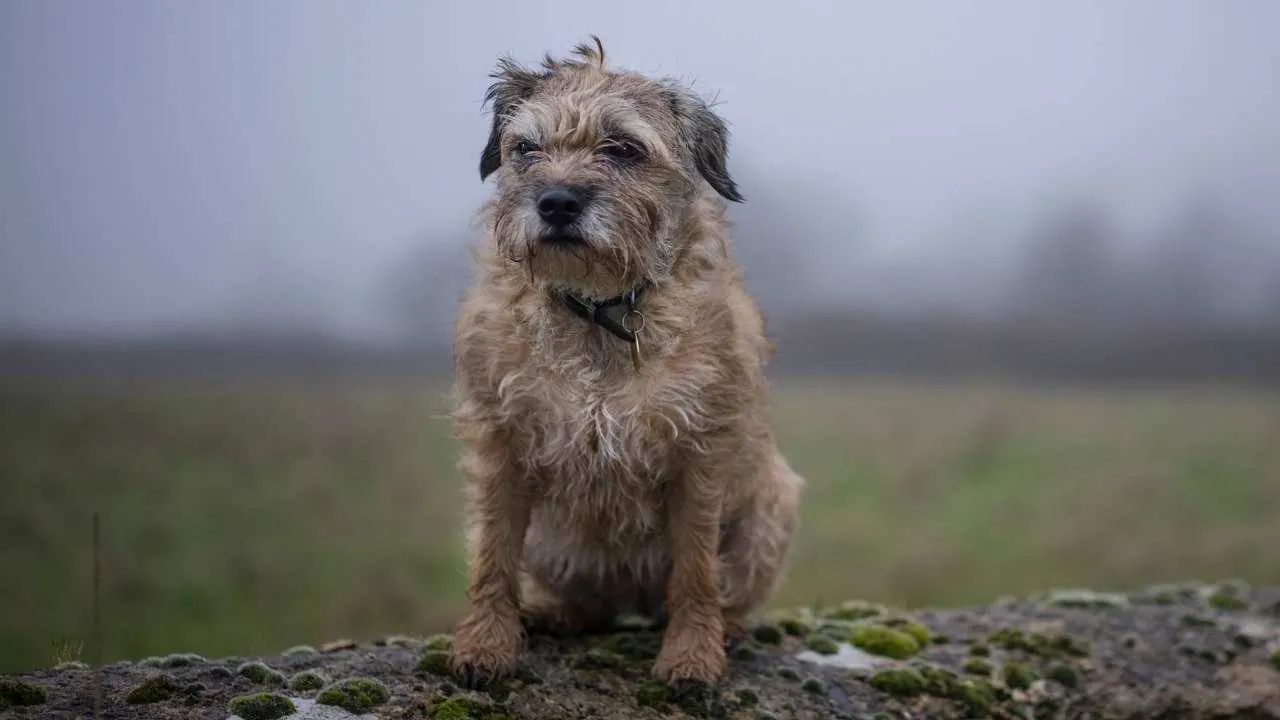
Training and Intelligence
Border Terriers are a smart and trainable hunting dog breed, but their independent streak and strong hunting instincts can make them a bit stubborn.
They respond well to positive reinforcement techniques like praise and treats, but they can get easily distracted—especially if something in the environment sparks their curiosity. Keeping training sessions short and fun will help keep them engaged and motivated to learn new tricks.
Size and Exercise Requirements
Border Terriers are compact yet muscular dogs that require a decent amount of exercise. While they enjoy walks and outdoor exploration, they thrive in environments where they can burn off their energy through play and mental stimulation.
A combination of daily walks, yard play, and interactive activities will keep this energetic breed happy and healthy.
Training Challenges and Behavioral Traits
Though Border Terriers are generally well-tempered, their independent nature can sometimes cause behavioral challenges.
Their strong prey drive means they may chase small animals like squirrels or cats if given the chance, so it’s important to supervise them outdoors. Without enough exercise or mental stimulation, they may resort to destructive behaviors like digging or chewing.
7. Yorkshire Terrier
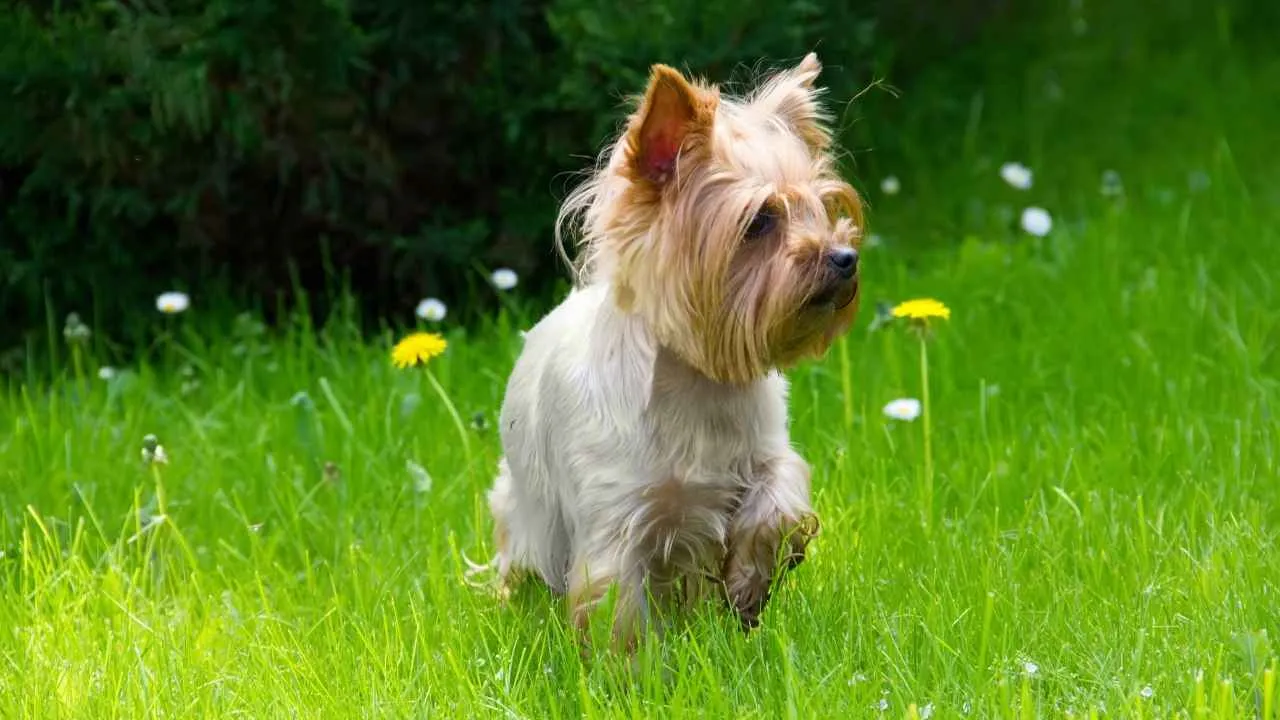
Energetic and Spirited Nature
The Yorkshire Terrier, or “Yorkie,” is a small dog with a larger-than-life attitude. With their luxurious, human-like coats and bold personalities, they love being the center of attention—one moment cuddling with their owner, the next chasing after a neighbor’s dog to show who’s boss.
Full of energy and curiosity, Yorkies are always on the go, ready to explore their surroundings and make their presence known.
Training and Intelligence
Yorkshire Terriers are surprisingly intelligent, and they’re quick to learn basic commands and tricks. However, their independent nature and selective obedience can make training a bit challenging, especially if they get distracted by something exciting.
With patience, consistency, and positive reinforcement, training can be a rewarding experience, as they’re eager to please their owner once they’re fully engaged.
Size and Exercise Requirements
Yorkies are energetic dogs that require regular exercise. They enjoy walking and trotting around for miles, and a minimum of 30 minutes of exercise each day is essential to keep them happy and healthy.
Along with walks, they also love playing games inside the house to keep their busy minds occupied—fetch or tug-of-war is always a good choice.
8. Shetland Sheepdog
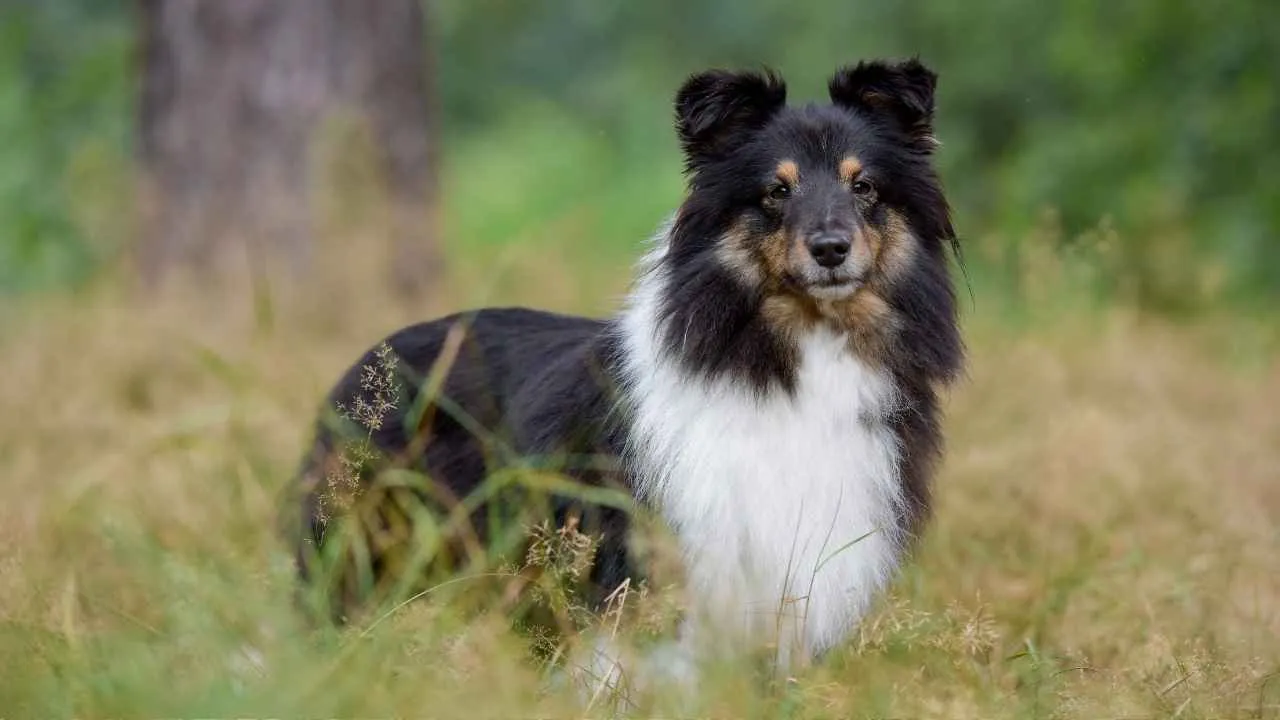
Size and Exercise Needs
They’re dogs with a sturdy build. Shelties are an active breed that requires daily exercise. Whether it’s long walks, playing fetch, or running in a safe, enclosed space, Shelties need at least 30 to 60 minutes of physical activity each day.
Without proper exercise, they can become bored, leading to unwanted behaviors such as excessive barking or destructive chewing.
Training Challenges and Behavioral Traits
Although Shelties are highly trainable, their sensitivity and herding instinct can present challenges. They tend to be reserved around strangers and may bark excessively, which makes them excellent watchdogs.
Their strong prey drive can also lead to chasing small animals, so supervision is important during outdoor activities. Their sensitive nature means that early socialization is important to prevent them from becoming timid or overly nervous around new people or situations.
Energetic and Loyal Personality
The Shetland Sheepdogs are active, agile, and highly intelligent dogs that thrive in environments where they can engage both physically and mentally.
Known for their boundless energy, they are incredibly loyal and deeply in tune with their family’s emotions, making them excellent companions and watchdogs.
9. Schipperke
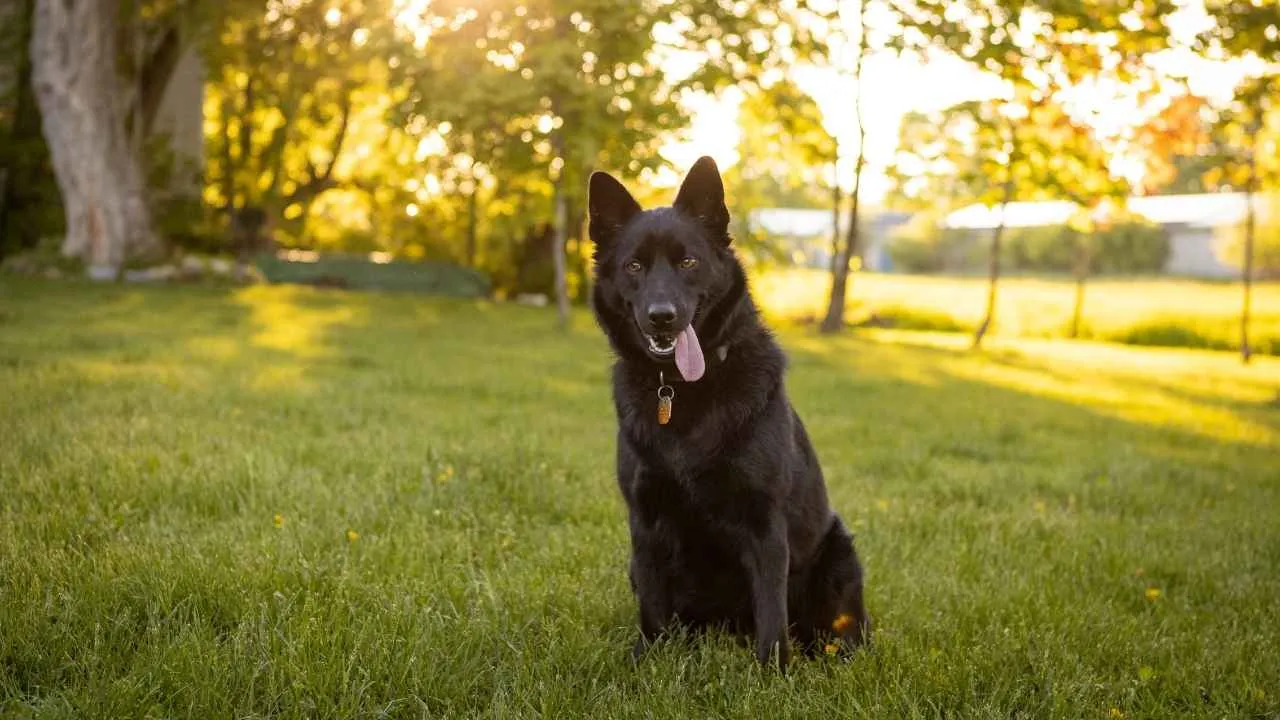
Training and Intelligence
Schipperkes are highly intelligent, but also a bit independent and stubborn. They thrive when training is kept fun and engaging, using positive reinforcement like treats and toys.
Due to their quick learning abilities, Schipperkes can excel in obedience, agility, and other canine sports. Consistent socialization from an early age will help prevent them from becoming too suspicious or overly vocal.
Exercise Needs
These active little dogs need at least 30 minutes to an hour of exercise every day, with activities that are mentally stimulating as well as physical.
Their natural curiosity means they enjoy varied walking routes, and they thrive when given different environments to explore, much like their barge-dwelling ancestors. Without enough stimulation, Schipperkes can become destructive, resorting to behaviors like excessive barking, digging, or chewing.
Grooming and Coat Care
Schipperkes have a thick, double coat that sheds twice a year. Their coat is medium-length with a softer undercoat, and they require regular brushing—at least once a week—to keep it in top condition.
Bathing should be done monthly or more often if they get particularly dirty. The coat’s maintenance is generally easy, but it’s important to stay on top of it, especially during shedding seasons.
Conclusion
Many small dog breeds, such as the Miniature Schnauzer, Shetland Sheepdog, and Toy Poodle, are incredibly intelligent and excel in obedience and agility training.
Their quick learning, problem-solving skills, and eagerness to please make them ideal companions for pet parents interested in canine sports and new challenges. These dogs thrive in both family environments and obedience competitions, showcasing remarkable intelligence and adaptability.
Breeds like the Schipperke, Boston Terrier are also highly intelligent, forming strong bonds with their families and excelling in mental and physical exercises.
With proper socialization and training, these dogs make loyal, affectionate pets that enjoy activities like agility and puzzle games, while also being well-suited to various living environments.
Ultimately, small dogs demonstrate that size doesn’t limit intelligence or trainability. With consistent positive reinforcement, these dogs can master new tricks, excel in obedience, and provide excellent companionship, proving that small breeds can be just as intelligent and versatile as larger ones.


